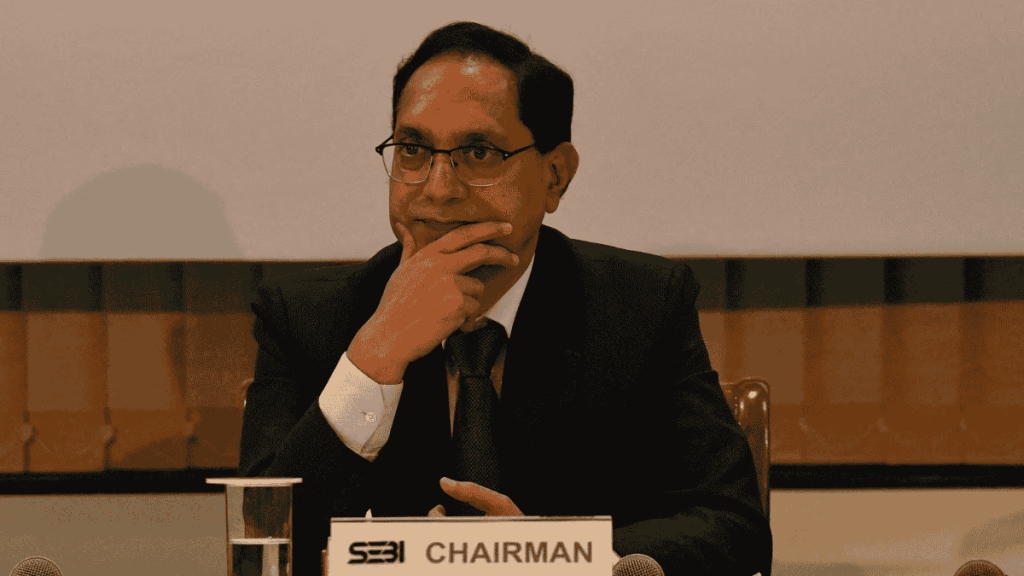The Reserve Bank of India (RBI) and Securities & Exchange Board of India (Sebi) are holding consultations on the introduction of bond derivatives, Sebi Chairman Tuhin Kanta Pandey said at the SBI Banking and Economics Conclave on Thursday.
“For the corporate bond market, our way forward will be to make debt instruments more attractive for retail,” he said. Pandey pointed out that the outstanding bank credit to industry and services stand at Rs 91 trillion while outstanding corporate bonds stand at Rs 54 trillion, highlighting a primary challenge and greatest opportunity.
“Deepening our equity, bond and alternative investment market is imperative to diversify and provide an alternate source of funding for our ambitions,” he added.
He also noted that the market regulator has floated a proposal to allow debt issuers to offer incentives to certain investor categories to encourage retail participation and other rationalisation measures. There are also plans for a nationwide education campaign to make investors aware about this market which will be rolled out shortly in consultation with all stakeholders.
He also said a consultation paper can be expected for IPO-bound companies to further rationalise existing contents of the offer document summary, adding that this summary will also be made available separately to investors from the offer document to encourage informed feedback from them.
There is another proposal for companies whose pre-IPO shares are pledged that will ensure that lock-in requirements are automatically enforced even if pledge is invoked or released, thereby preventing listing delays.
Pandey also said that the commodity market is a priority for the market regulator. It will work with the RBI to create a regulatory framework to enable prudent institutions where banks, insurance companies and pension funds participate, and traditional institutions can get access to the commodity markets. There is also a proposal to allow FPIs to trade in non-cash settled non-agricultural commodity derivative contracts is currently also under examination.
Governance must go beyond structure to substance
Noting that technology has evolved the markets and that the challenges of today are far more complex than those of a decade ago, the Sebi chairman on Thursday highlighted the need for governance to go beyond structure to substance.
In his speech at the Gatekeepers of Governance – Corporate Governance Summit, he said, “Technology has compressed time; information spreads instantly; and reputation can get affected overnight.”
He added that boards must view culture as an asset that needs to be monitored,
measured and nurtured as leading institutions are now tracking indicators like employee feedback, whistle-blower activity, and conduct trends.
On digital governance, he said: “Today, algorithms execute trades, manage portfolios and even risks. Yet, with technology comes accountability. Boards must oversee not just financial risks, but data ethics, cyber resilience and algorithmic fairness.”
According to him, instead of treating disclosure as a compliance exercise, companies should view it as an opportunity to communicate values and judgment. He added, “ESG must be authentic —not a branding exercise”
To turn regulatory obligations to advantage, he said, boards should adopt governance scorecards and astanding ethics committee at the board level can act as an early-warning mechanism. “Automation in compliance, machine-readable reporting, and real-time surveillance can transform transparency from aspiration to reality,” he said.
